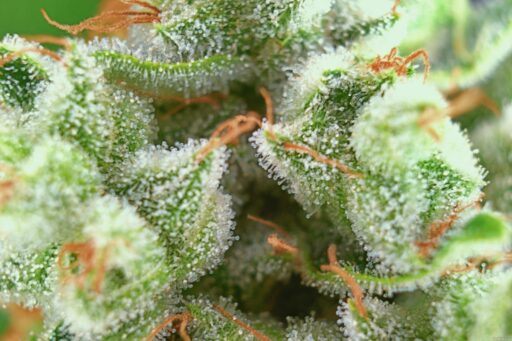Arizona’s stance on marijuana has evolved significantly, with recent legislative changes transforming the legal landscape for both recreational and medical cannabis use. This article delves into the current state laws governing marijuana in Arizona, providing clarity on what is permitted and what remains prohibited. We’ll explore the historical context, the specifics of Proposition 207, and the implications for individuals and the cannabis industry within the state.
Key Takeaways
- Marijuana is legal in Arizona for both recreational and medical use following the passage of Proposition 207.
- Adults aged 21 and over are allowed to possess up to 1 ounce of marijuana flower or 5 grams of concentrate.
- Individuals can cultivate up to six marijuana plants at their residence under specific regulations.
- Public consumption of marijuana remains illegal, and there are penalties for violations of the law.
- The legalization of marijuana in Arizona includes provisions for expungement of previous marijuana convictions, impacting employment and DUI regulations.
Overview of Arizona’s Marijuana Legalization

Historical Context of Cannabis Laws in Arizona
The journey towards the legalization of marijuana in Arizona has been a long and complex one. For most of the 1900s, cannabis was illegal in Arizona, with stringent laws against its cultivation, distribution, and use. The earliest records of marijuana-related arrests date back to the 1920s, marking the beginning of a century-long prohibition.
The path to legalization began in earnest with Proposition 200 in 1996, which was an early attempt to allow medical marijuana use, albeit with federal authorization.
Subsequent efforts to reform cannabis laws included several key propositions:
- 2002: Proposition 203 aimed to decriminalize adult-use marijuana, proposing the possession of 2 ounces and cultivation of two plants per household.
- 2010: The successful passage of Proposition 203, the Arizona Medical Marijuana Act, legalized medical cannabis use.
- 2016: Proposition 205 sought to legalize adult-use cannabis but was voted down.
- 2019: Senate Bill 1494 was signed, mandating third-party testing for medical marijuana potency and contaminants.
Current Status of Marijuana Legalization
In Arizona, marijuana has reached a milestone of full legalization for both recreational and medical use. Adults in Arizona can legally possess up to 1 ounce of marijuana and are permitted to grow a maximum of six plants in their homes for personal use. The passage of AZ Prop 207 in 2020 marked a significant shift in the state’s approach to cannabis, with dispensaries now operating widely and social acceptance on the rise.
The legal landscape for marijuana in Arizona is as follows:
- Legal Status: Fully Legal
- Possession Limits: 1 oz flower, 5 g concentrate
- Cultivation Laws: Up to 6 plants
Medical marijuana patients enjoy additional benefits, including employment protections, tax breaks, and the ability to purchase and grow larger quantities of cannabis compared to recreational users. The state’s cannabis laws have evolved to reflect a more progressive stance, aligning with a broader national trend towards legalization.
Key Provisions of Proposition 207
In November 2020, Arizona voters passed Proposition 207, also known as the Smart and Safe Arizona Act, fundamentally changing the state’s approach to cannabis. This landmark legislation permits individuals 21 years of age and older to legally possess, use, and purchase marijuana for recreational purposes.
Proposition 207 set forth a new era for cannabis in Arizona, with a focus on regulation, taxation, and responsible adult use.
The act also established possession limits, allowing adults to have up to 1 ounce of marijuana or 5 grams of marijuana concentrate. Moreover, it authorized the personal cultivation of up to 6 marijuana plants at an individual’s primary residence, with a maximum of 12 plants per household with two or more adults.
Here are some additional key provisions:
- Legalization of marijuana-related paraphernalia for cultivation, manufacture, and consumption.
- Implementation of a regulatory framework overseen by the Arizona Department of Health Services (ADHS).
- Introduction of new rules for marijuana establishments and testing facilities, effective as of January 2021, with revisions in September 2022.
- Enhanced penalties for drug offenses involving minors or occurring in school zones.
Recreational Marijuana Use in Arizona

Legal Age and Possession Limits
In Arizona, the legal age for marijuana possession and consumption is set at 21 years and older. Individuals within this age bracket are permitted to possess up to one ounce of marijuana; however, within this limit, only 5.0 grams can be in the form of cannabis concentrates. These concentrates are a potent byproduct of extracting THC from the cannabis plant.
The laws also stipulate that adults may transfer up to one ounce of marijuana to another adult, provided that there is no remuneration involved in the transaction. It’s important to note that while possession is legal for adults, public consumption remains illegal.
For those under the age of 21, any possession or consumption of marijuana less than one ounce, or possession of less than 5 grams of cannabis concentrates, is considered a civil offense. A first-time offender may face a fine of not more than $100.
The state’s approach to marijuana is one of responsible consumption and understanding the nuances of the law is crucial for compliance.
Regulations for Personal Cultivation
In Arizona, the personal cultivation of marijuana comes with specific regulations to ensure compliance with state laws. Adults are permitted to grow up to six marijuana plants at their private residence for non-commercial purposes. If there are two or more adults in the same household, the limit increases to twelve plants. However, there are additional conditions that must be adhered to:
- All plants must be cultivated in an area that is equipped with security measures to prevent unauthorized access.
- The cultivation area must be out of public view, ensuring that plants are not visible from outside the residence.
- In households with multiple adults, the cultivation limit of twelve plants applies collectively, not per individual.
It’s important to note that while cultivation for personal use is permitted, public consumption remains illegal in Arizona. This distinction is crucial for residents to avoid legal repercussions.
For medical marijuana patients and their caregivers, the cultivation rules differ slightly. They are allowed to grow up to twelve plants but only if they reside more than 25 miles from the nearest medical marijuana dispensary. This provision ensures that patients with limited access to dispensaries can still obtain their medication.
Public Consumption Laws and Restrictions
While Arizona permits the possession and private use of marijuana, public consumption is strictly prohibited. This includes any form of consumption in open spaces or places accessible to the public, such as parks, sidewalks, and businesses. Smoking marijuana is allowed only in private residences, ensuring that use is discreet and does not impact the broader community.
It’s important to remember that the freedom to possess and consume cannabis comes with the responsibility to adhere to state laws, respecting both the public space and other individuals’ rights to a smoke-free environment.
The following points highlight key restrictions regarding public consumption:
- Public consumption of marijuana is illegal under any circumstance.
- Smoking is not permitted in public places or open spaces.
- Consumption in a vehicle is prohibited, for both drivers and passengers.
- Employers have the right to restrict marijuana use and possession in the workplace.
Violating these laws can result in penalties, ranging from a petty offense for minor infractions to more serious legal consequences for repeated or egregious violations.
Medical Marijuana in Arizona

Qualifying Conditions for Medical Use
In Arizona, the eligibility for a medical marijuana card is strictly defined by a list of qualifying medical conditions. Patients must be diagnosed with at least one of the specified ailments to be considered for the program. These conditions range from severe chronic pain to life-threatening diseases.
- Acquired Immune Deficiency Syndrome (AIDS)
- Agitation of Alzheimer’s disease
- Amyotrophic Lateral Sclerosis (ALS)
- Cachexia or wasting syndrome
- Cancer
- Crohn’s disease
- Glaucoma
- Hepatitis C
- Human Immunodeficiency Virus (HIV)
- Post Traumatic Stress Disorder (PTSD)
- Severe and chronic pain
- Severe nausea
- Seizures
- Muscle spasms
To ensure the integrity of the medical marijuana program, Arizona has implemented stringent requirements for obtaining a physician’s written certification. This certification must confirm that the patient has been diagnosed with a debilitating condition and that they would likely benefit from marijuana therapy.
How to Obtain a Medical Marijuana Card
In Arizona, obtaining a medical marijuana card requires patients to meet specific criteria set by the Arizona Department of Health Services (ADHS). Adults and minors can apply, with minors needing to designate a caregiver and provide certification from two physicians. The process involves joining the state’s medical marijuana registry and obtaining a registry identification card.
To be eligible, patients must exhibit one or more qualifying conditions. These include, but are not limited to, severe and chronic pain, cancer, PTSD, and seizures. A full list of conditions can be found on the ADHS website. Once a patient’s condition is verified, they can apply for their Patient, Caregiver, or Facility Agent Medical Marijuana Registry Identification Card.
It is important to note that while medical marijuana patients in Arizona can possess up to 2.5 ounces of cannabis, public consumption is illegal, and driving under the influence is strictly prohibited.
Patients living more than 25 miles from the nearest dispensary are entitled to cultivate up to 12 plants at home, provided they are kept in secure containers and enclosures. Visiting patients from other states with qualifying conditions and a valid medical marijuana ID card may possess cannabis but cannot purchase it within Arizona.
Differences Between Medical and Recreational Use
In Arizona, the legal landscape for marijuana use has distinct guidelines for medical and recreational purposes. Medical marijuana patients have access to higher potency edibles and are exempt from the additional excise tax imposed on recreational cannabis. Recreational users, on the other hand, face potency limits and additional taxation.
- Medical marijuana is subject to the standard state sales tax rate of 5.6%.
- Recreational marijuana includes an additional 16% excise tax on top of the sales tax.
While both medical and recreational marijuana are legal for adults, the regulations surrounding their use, possession, and purchase vary significantly. Medical users can consume cannabis edibles in public, whereas recreational use in public spaces is prohibited. Driving under the influence of either is illegal, and employers maintain the right to restrict marijuana use in the workplace.
Legal Implications and Enforcement

Penalties for Violating Cannabis Laws
In Arizona, the penalties for violating cannabis laws vary depending on the nature and severity of the offense. Possession of more than the legal limit can result in significant fines and incarceration. For example, transferring up to 1 ounce of marijuana without remuneration carries no penalty, while possession of more than 4 lbs is a felony, punishable by 4 to 10 years in prison and a $150,000 fine.
First offenses for public consumption are considered a petty offense with a fine up to $300. Repeat offenses may escalate to a class 3 misdemeanor, potentially leading to a $500 fine or up to 30 days in jail.
Here’s a breakdown of penalties for personal cultivation:
- Less than 6 plants: No penalty
- 6 plants or more: Felony, 9 months to 7 years incarceration, $150,000 fine
Driving under the influence of cannabis is also illegal and carries its own set of penalties, including fines, license suspension, and possible jail time. It’s crucial for residents and visitors to understand and adhere to these laws to avoid legal consequences.
Expungement of Previous Marijuana Convictions
With the passage of Proposition 207, Arizona has taken significant steps to address the consequences of past marijuana convictions. Individuals previously convicted for possessing 2.5 ounces or less of marijuana are now eligible for expungement, ensuring a clean slate in the public eye. This change reflects the state’s shift towards decriminalization and acknowledges the disproportionate impact of previous laws.
The process for expungement in Arizona is designed to be accessible. There is no fee to apply, and individuals have the opportunity to re-apply if their initial petition is dismissed or denied. In the event of a denial, a 14-day window is available to file an appeal.
The following are common defenses that could have led to the dismissal of charges under the old laws, which are now grounds for expungement:
- The defendant was a medical marijuana patient legally allowed to possess marijuana.
- Lack of probable cause for a search warrant, rendering any marijuana found inadmissible in court.
- The defendant was unaware of the marijuana, negating the ‘knowing possession’ requirement.
Impact on Employment and DUI Regulations
The legalization of marijuana in Arizona has significant implications for both employment and driving under the influence (DUI) regulations. Employers retain the right to maintain a drug-free workplace, and nothing in the law prevents them from taking action against employees who use, possess, or are under the influence of marijuana at work. The definition of impairment, critical for employment rights, is outlined in the Arizona Drug Testing of Employees Act.
When it comes to DUI, the legal landscape has evolved. Proposition 207 introduced a crucial change: to convict someone of a marijuana DUI, it must be proven that the individual was impaired to the slightest degree by marijuana. This is a shift from previous laws where the mere presence of THC in the system could lead to a DUI charge.
The focus on impairment rather than mere presence of THC aligns with the state’s commitment to fair and responsible regulation of marijuana use, both recreationally and medically.
The table below summarizes the key points regarding employment and DUI regulations post-legalization:
| Aspect | Detail |
|---|---|
| Employment Rights | Action permissible for workplace use or impairment |
| DUI Standard | Proof of impairment required for conviction |
| Workers’ Compensation | No requirement to reimburse for medical marijuana costs |
Understanding these regulations is essential for both employers and employees to navigate the new legal environment responsibly.
Navigating the Cannabis Industry in Arizona

Licensing and Regulation of Dispensaries
In Arizona, the legal sale of cannabis is confined to licensed dispensaries. These dispensaries are regulated by the Arizona Department of Health Services (ADHS) and must adhere to strict guidelines to operate legally. Dispensaries can be licensed for medical, adult-use, or both, with all medical marijuana dispensaries operating as non-profit entities.
To open a dispensary, businesses must navigate a series of licensing requirements. For instance, they need a transaction privilege tax (TPT) license and a Marijuana Excise Tax (MET) registration number. The ADHS restricts the number of dispensaries based on pharmacy permits issued in the state, allowing only one medical marijuana dispensary license per ten pharmacy permits.
The process of obtaining a license is comprehensive, ensuring that only qualified entities are able to sell marijuana and marijuana products in Arizona.
Here is a brief overview of the types of licenses required for different marijuana-related activities:
- Grow or Cultivate Marijuana: TPT License required, MET License not applicable.
- Wholesaler of Marijuana: Both TPT and MET Licenses required.
- Manufacturer of Marijuana Oils and Ointments: Both TPT and MET Licenses required.
- Retailer of Adult Use Marijuana: TPT License and MET License update required.
- Retailer of Medical Marijuana: TPT License required, MET License update if applicable.
Economic Impact of Legalization
The legalization of marijuana in Arizona has brought about significant economic implications. Tax revenues from cannabis sales have become a new source of funding for state programs and services. A portion of these funds is allocated to support communities historically affected by stringent drug laws.
- Excise and occupational taxes on cannabis production and import/export facilities.
- Financial support for educational research on the impact of legalization on school-aged children.
- Access to federal public benefits for individuals with certain cannabis convictions.
The economic landscape of Arizona is evolving as the cannabis industry continues to integrate into the state’s financial fabric. The creation of jobs and the stimulation of ancillary businesses are also noteworthy outcomes of this shift.
The state has also established a trust fund to aid programs for those negatively impacted by previous drug wars, highlighting a commitment to remedying past injustices. Moreover, the National Institute for Occupational Safety Administration is tasked with researching the workplace impact of recreational cannabis, indicating a proactive approach to understanding and managing the industry’s broader effects.
Future Outlook and Potential Legislative Changes
The trajectory of marijuana legislation in Arizona points towards a more integrated and possibly expansive legal framework. Federal initiatives, such as the MORE Act, suggest a nationwide shift that could influence Arizona’s policies.
- The MORE Act aims to decriminalize marijuana at the federal level, potentially impacting state regulations.
- Demographic data publication could lead to more informed policy-making in Arizona.
- Trust funds from the Act may benefit communities in Arizona affected by previous drug policies.
The evolution of the cannabis industry in Arizona is likely to continue, with adjustments to laws and regulations reflecting societal and economic trends.
As dispensaries proliferate and social acceptance grows, Arizona’s cannabis industry is poised for further development. The state’s approach to workplace considerations, such as drug testing services, will be crucial in shaping the future landscape of marijuana use and its integration into various sectors.
Conclusion
In summary, Arizona has undergone significant changes in its approach to marijuana laws. As of the latest updates, both recreational and medical marijuana are fully legal in the state for adults aged 21 and over. Individuals are allowed to possess up to 1 ounce of marijuana or 5 grams of concentrate and can cultivate up to 6 plants per household. Despite the legalization, public consumption remains illegal, and there are strict penalties for possession, sale, and cultivation beyond legal limits. It’s crucial for residents and visitors to stay informed about the nuances of these laws to ensure compliance and avoid legal repercussions. The passage of Proposition 207 marked a pivotal shift in Arizona’s stance on cannabis, reflecting a broader trend of legalization across the United States. As the legal landscape continues to evolve, it is important to keep abreast of any new developments in Arizona’s marijuana regulations.
Frequently Asked Questions
Is marijuana legal in Arizona?
Yes, marijuana is fully legal in Arizona for both recreational and medical use, following the passage of Proposition 207 in November 2020.
What are the possession limits for marijuana in Arizona?
Adults 21 years and older may possess up to 1 ounce of marijuana flower or 5 grams of concentrate in Arizona.
Can I grow my own marijuana plants in Arizona?
Yes, it is legal for adults to grow up to six marijuana plants at their primary residence in Arizona.
Where is it legal to consume marijuana in Arizona?
It is illegal to consume marijuana in public places in Arizona. Consumption is typically limited to private residences.
Are there any expungement options for previous marijuana convictions in Arizona?
Yes, individuals with certain marijuana-related convictions can petition for expungement of their records starting from July 12th, 2021.
What are the penalties for violating cannabis laws in Arizona?
Penalties in Arizona can include fines and imprisonment, depending on the severity of the violation, such as possession, sale, or cultivation above the legal limit.





